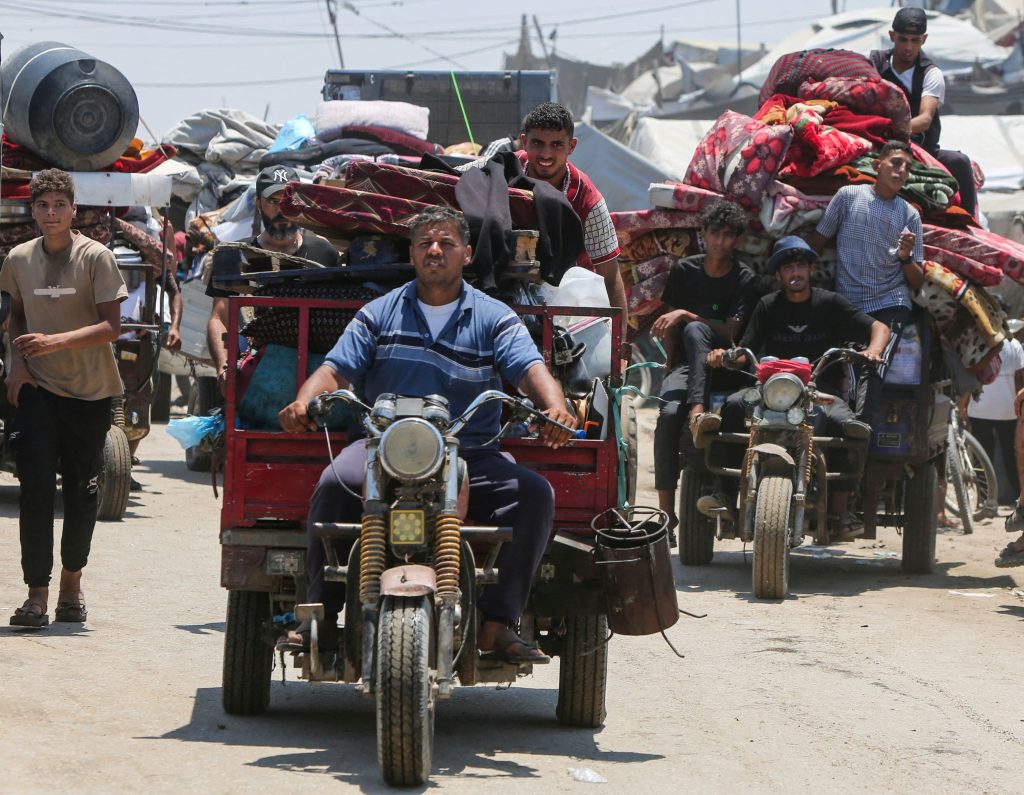World
The rising threat of natural disasters: A global wake-up call
DDM News

Natural disasters have always been a part of our planet’s history.
However as gathered by Diaspora Digital Media (DDM) , recent years have seen an alarming increase in their frequency and severity.
From wildfires sweeping through the Australian outback to hurricanes battering the Caribbean, the global impact is undeniable.
Experts are sounding the alarm, pointing to climate change as the primary culprit behind the rise in catastrophic events.
The last decade has seen a significant spike in the intensity of natural disasters.
Millions of people have been affected, entire ecosystems destroyed, and billions of dollars in damages have been incurred.
According to the United Nations Office for Disaster Risk Reduction (UNDRR), the frequency of extreme weather events has risen by nearly 40% since 2010.
This trend is expected to accelerate in the coming years.
At the heart of this growing threat lies climate change.
As global temperatures rise due to increased greenhouse gases, extreme weather events are becoming more powerful and unpredictable.
Hurricanes are gaining strength as oceans warm.
Droughts are becoming longer and more severe, exacerbating the risk of wildfires.
Rising sea levels are making coastal areas more vulnerable to flooding, leaving millions at risk.
The Intergovernmental Panel on Climate Change (IPCC) has warned that the effects of climate change will continue to worsen.
“The window to avoid the worst impacts of climate change is rapidly closing,” said Dr. Maria Fernandes, an IPCC scientist.
“We are seeing the consequences now, and unless we act urgently, these events will become the new normal.”
The impacts of these natural disasters are felt across the globe.
In 2024, the Caribbean experienced one of the worst hurricane seasons in decades.
Hurricane Isabella caused widespread destruction in Puerto Rico, Cuba, and the Dominican Republic.
In Australia, wildfires have become an annual disaster.
The 2023 fire season burned over 8 million acres of land.
It killed hundreds of people and forced thousands to flee their homes.
In parts of Asia, floods have caused significant loss of life.
Meanwhile, droughts in Africa have led to severe food shortages and displacement.
Rising temperatures are also affecting agriculture, with crop yields declining in vulnerable regions.
This has resulted in food insecurity for millions, particularly in low-income countries.
The humanitarian toll of natural disasters is staggering.
The displacement of entire populations, loss of homes and livelihoods, and overwhelming strain on healthcare systems create ongoing crises.
The World Health Organization (WHO) reports that natural disasters have led to a rise in health-related issues.
These include malnutrition, mental health disorders, and infectious diseases.
One of the most affected groups is children.
Children are particularly vulnerable to the health and social consequences of natural disasters.
The United Nations Children’s Fund (UNICEF) has highlighted the long-term impacts on education.
Schools are often destroyed or repurposed as emergency shelters, leaving children without education for extended periods.
While the scale of natural disasters is daunting, experts agree that proactive measures can mitigate the impact.
Governments and communities must work together to develop disaster response plans, improve early warning systems, and build resilient infrastructure.
Preparedness and resilience are key to minimizing damage caused by these events.
In addition, global efforts to combat climate change must be ramped up.
Reducing carbon emissions, transitioning to renewable energy, and protecting natural ecosystems are essential steps in reducing long-term risks.
The rising frequency of natural disasters is a wake-up call for the global community.
While we may not be able to prevent all natural disasters, the steps we take today will determine how we cope in the future.
By acting quickly to address climate change, strengthening disaster response systems, and supporting vulnerable communities, we can reduce the devastating impacts of these events.
Together, we can build a more resilient world for future generations.
For Diaspora Digital Media Updates click on Whatsapp, or Telegram. For eyewitness accounts/ reports/ articles, write to: citizenreports@diasporadigitalmedia.com. Follow us on X (Fomerly Twitter) or Facebook











